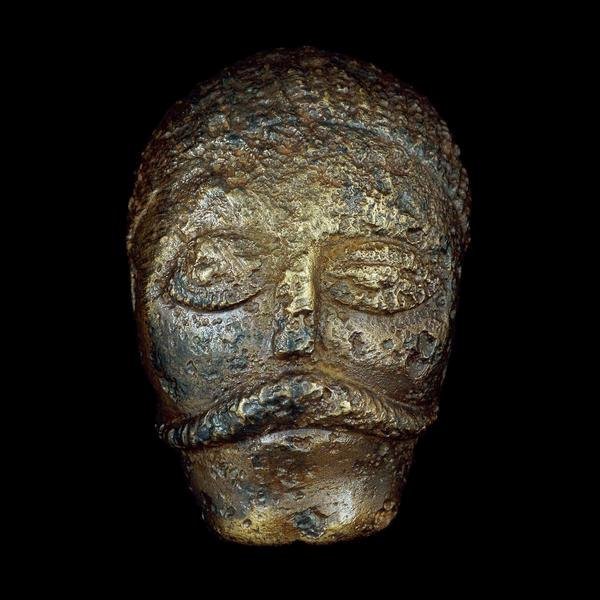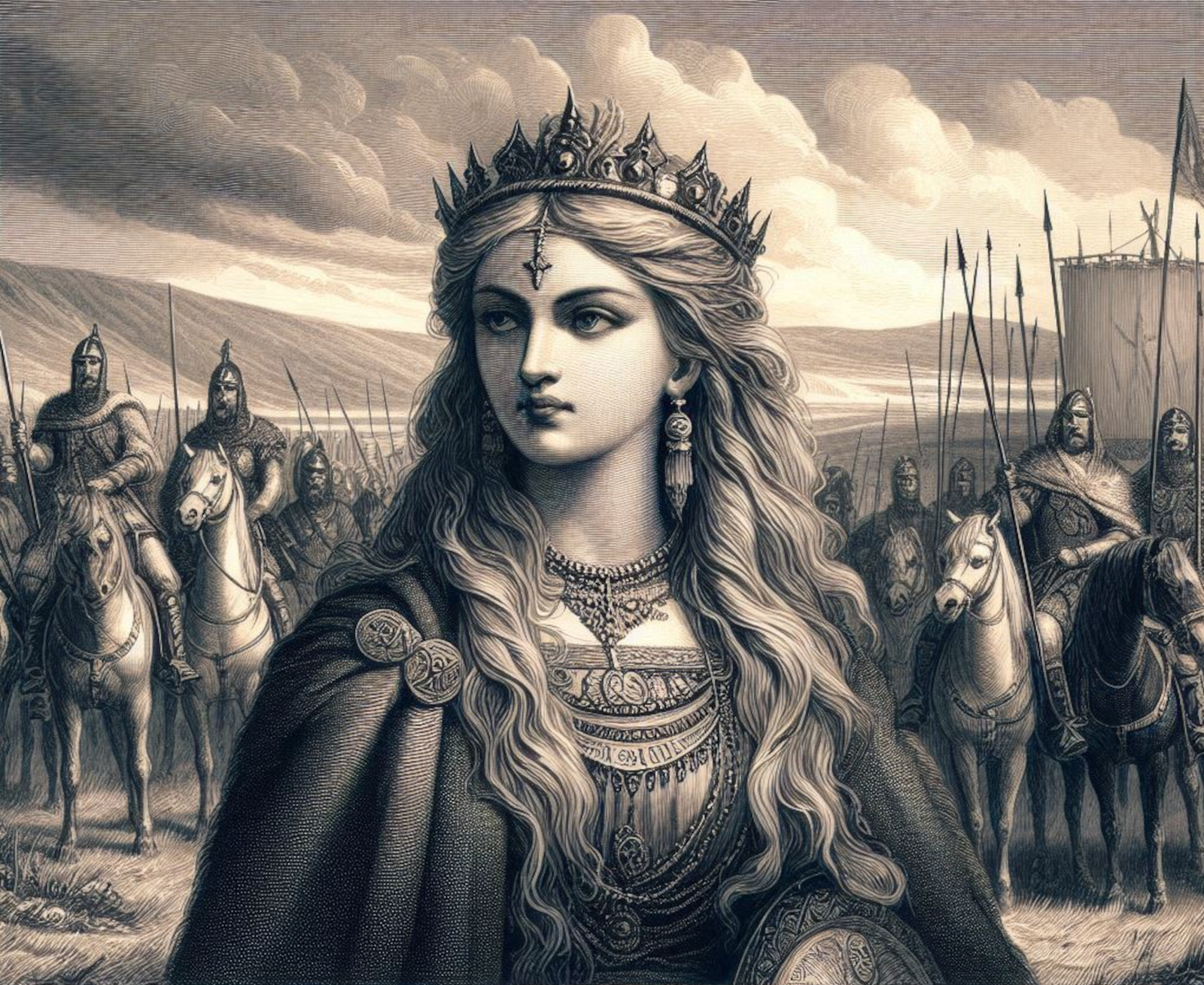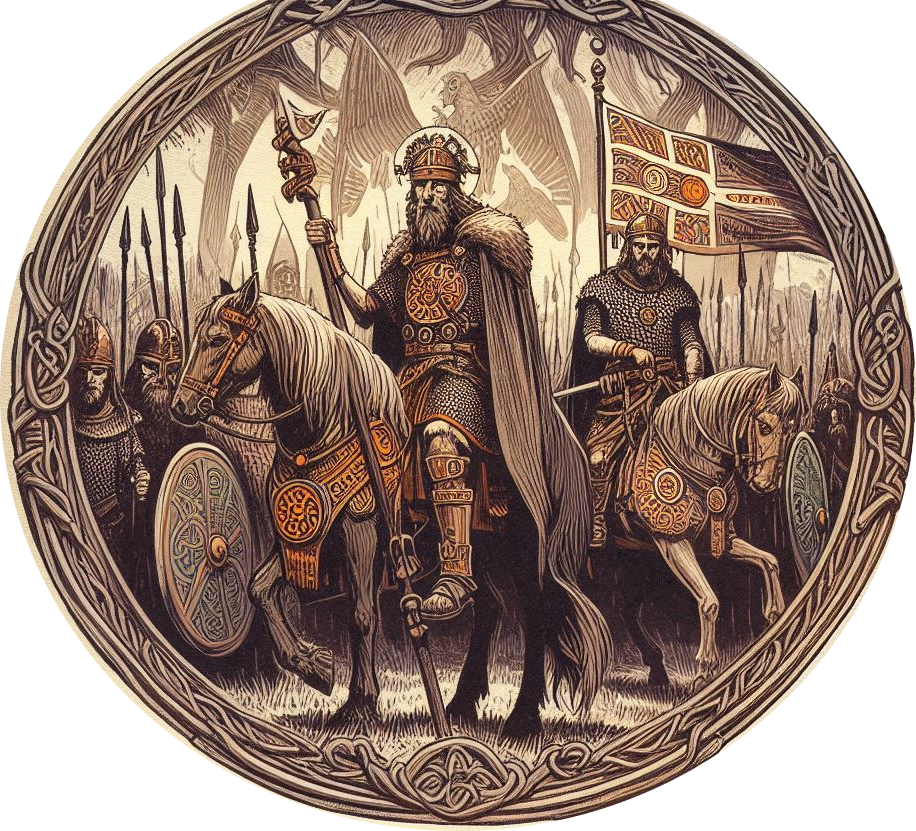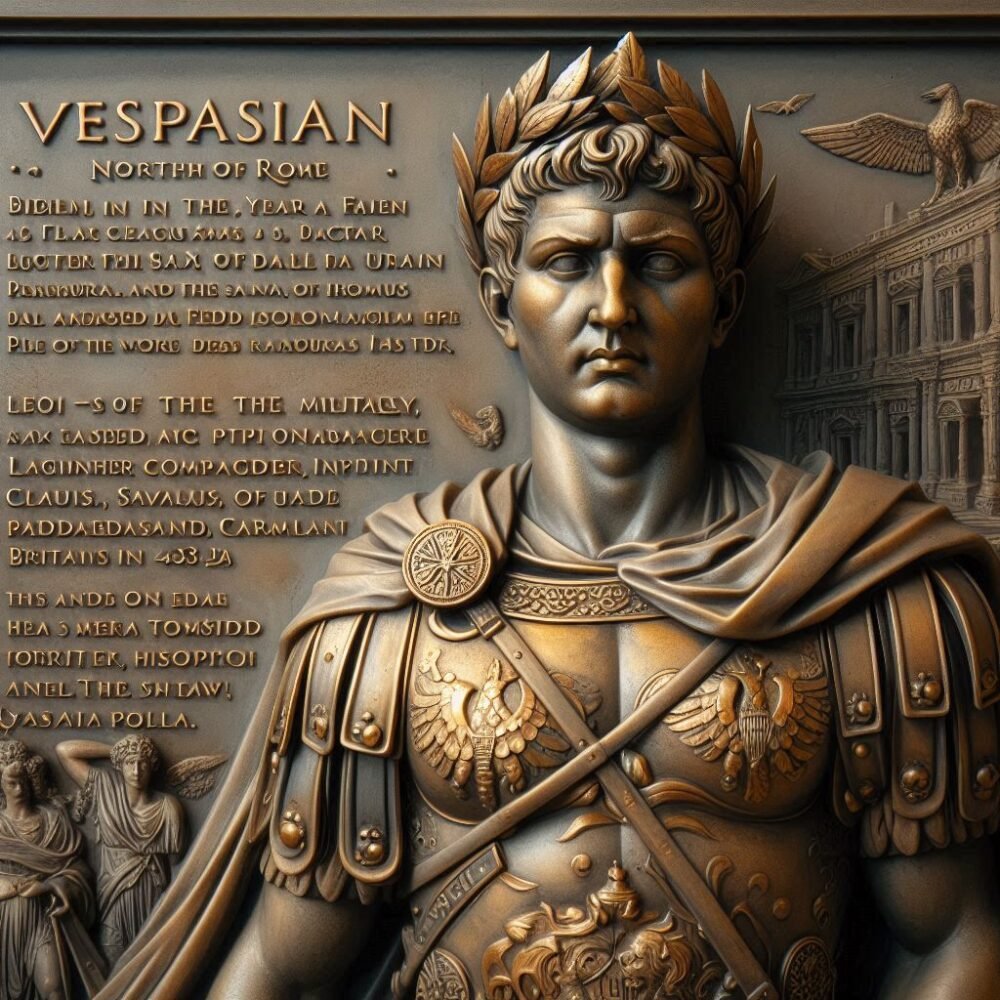
A surmised life of Venutius
Venutius was a notable figure in the 1st-century history of northern Britain, known primarily as the king of the Brigantes during the Roman conquest. The following text summarises what we can potentially understand about him, and tries to tie him to places and other possibilities that are not supported by the historical record. At the end of the section, what records to exist are explained.
His reign is marked by his marriage to Cartimandua, queen of the Brigantes, and his subsequent leadership in resistance against Roman occupation.
Historical records suggest that Venutius may have been part of the Carvetii tribe, which was likely included in the Brigantes confederation. The speculation that Venutius may have been part of the Carvetii tribe arises from the complex nature of tribal affiliations and the political landscape during the Roman conquest of Britain. The Carvetii, while not extensively documented in classical texts, are known from Roman inscriptions that suggest they had their own civitas or governing body within the region of Cumbria. The link between Venutius and the Carvetii is inferred from his known position as a leader within the Brigantes confederation, which the Carvetii were likely a part of. Historians Higham and Jones, among others, have suggested that Venutius’ resistance against Roman rule and his military skill could indicate his leadership within a distinct group like the Carvetii. Additionally, the Carvetii’s presumed capital at Clifton Dykes and the strategic importance of this location in the Eden Valley could have been significant in the power dynamics of the region, potentially placing Venutius in a position of influence within this tribe.
However, personally, I’d suggest it is more likely that he came from Ireland, based on the idea that there were strong tribal links with these two branches of the Brigantes, and it would make sense that Cartimandua might send for help from her Irish cousins, and it’s more reasonable to see this are the way Venutius was able to get so close to Cartimandua. While there is no definitive evidence to confirm Venutius’ Irish origins, the possibility arises from the common practice of intertribal movement and marriage alliances designed to strengthen political ties. Such connections could have facilitated the movement of individuals or groups between the Irish and British Brigantes, potentially explaining the suggestion of Venutius’ Irish heritage. However, the historical records from this period are sparse, and much of what is known is pieced together from archaeological findings and the limited written accounts of Roman historians.
His relationship with Rome was complex; initially allied with the Romans through his marriage to Cartimandua, he later became a prominent leader of resistance after their divorce and her remarriage to his armour-bearer, Vellocatus. Venutius’s revolts against Roman rule are documented during the governorship of Aulus Didius Gallus and again in 69 AD, taking advantage of the Roman political instability during the year of four emperors. The outcome of his second revolt resulted in Cartimandua’s evacuation and Venutius taking control of the kingdom. However, the details of his life following these events remain largely unknown, with no records of his fate after the accession of Emperor Vespasian. The Brigantes themselves were not fully subdued until many decades later, indicating that Venutius’s impact on the resistance may have had lasting effects beyond his own lifetime.
The revolts led by Venutius against Roman rule were fuelled by a combination of personal and political factors. The breakdown of his marriage to Cartimandua, may have played a significant role. Cartimandua’s decision to hand over Caratacus, a British chieftain, to the Romans must have been seen as a betrayal by many and could have been a catalyst for the revolts. Venutius’s own ambitions to lead and his opposition to Roman occupation may have also contributed to his decision to rebel. These events highlight the complex interplay of personal vendettas and the broader resistance against Roman expansion that characterized Venutius’s leadership and the turbulent history of the Brigantes during this period.
The Roman response to Venutius’s revolts was a strategic combination of military intervention and political manoeuvring. During the initial stages, the Romans supported Queen Cartimandua, Venutius’s ex-wife, who had aligned herself with Rome and had previously betrayed the British resistance leader Caratacus to the Romans. When Venutius led a revolt against Cartimandua, the Romans defended their client queen, and the rebellion was suppressed by Caesius Nasica under the governorship of Aulus Didius Gallus.
However, the most significant Roman reaction came during the second revolt in 69 AD, known as the Year of the Four Emperors, when Venutius took advantage of the Roman political instability. Despite their own challenges, the Romans dispatched auxiliary infantry and cavalry to quell the uprising. The Roman forces, although initially meeting with indifferent success, eventually managed to rescue Cartimandua from the conflict. Venutius managed to reclaim the throne, but the Romans retained their presence and control over the region, indicating their resilience and strategic capabilities in maintaining their empire’s stability despite facing internal strife and external resistance. The Brigantes were not fully subdued until many decades later, suggesting that while the Romans could manage immediate threats, the long-term pacification of the region remained a complex and ongoing challenge.
As the backbone of the Roman military might, the legions will have been instrumental in defending the interests of the Empire in Britain. The second and more significant revolt occurred during the tumultuous Year of the Four Emperors (69 AD), when Venutius capitalized on the Roman political instability. Despite their own internal conflicts, the Romans managed to send auxiliary infantry and cavalry to Britain commanded by Bolanus. These forces engaged in several battles with Venutius’s forces, and although they faced fierce resistance, they were ultimately successful in rescuing Queen Cartimandua and maintaining Roman influence over the Brigantes. The legions’ involvement showcased the strategic importance Rome placed on maintaining control over its provinces and the lengths it would go to suppress any threats to its authority.
Venutius from the records
Venutius is mentioned in several ancient Roman sources, most notably by the historian Tacitus. In his work ‘The Annals,’ Tacitus refers to the events surrounding Venutius and Cartimandua during the Roman governorship of Aulus Didius Gallus, noting the internal conflict and subsequent war that arose from their divorce. Tacitus writes,
“After the capture of Caractacus, Venutius of the Brigantes, as I have already mentioned, was pre-eminent in military skill; he had long been loyal to Rome and had been defended by our arms while he was united in marriage to the queen Cartimandua. Subsequently, a quarrel broke out between them, followed instantly by war, and he then assumed a hostile attitude also towards us” (The Annals, Book 12, Chapter 40).
In ‘The Histories,’ Tacitus provides further details, describing the personal and political turmoil that led to the revolts:
“Her authority had lately increased, since she had betrayed King Caratacus into the hands of the Romans, and was thus considered to have provided Claudius Caesar with material for his triumph. Thus, she had grown rich, and with prosperity came demoralization. She threw over Venutius, who was her husband, and gave her hand and kingdom to his armour bearer, Vellocatus. This crime soon proved the ruin of her house. The people supported her husband: she defended her lover with passionate ferocity” (The Histories, Book 3, 45).
These quotations provide a glimpse into the complex dynamics of power, loyalty, and resistance during the Roman occupation of Britain. Venutius’s role as both an ally and an adversary to Rome highlights the intricate and often volatile relationships between the Roman Empire and the local tribal leaders of the time.


























